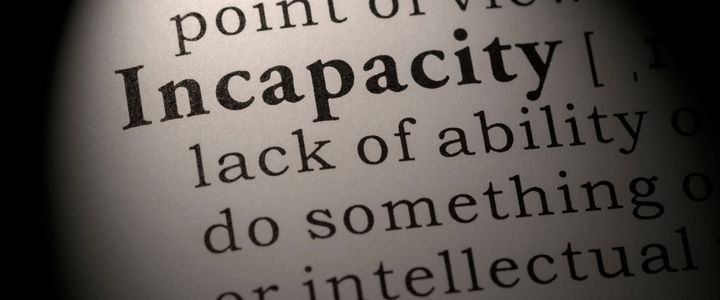When it comes to planning for the future, many people ask, “Is estate planning the same as a will?” Knowing the key differences between these two legal ideas can help you and your family create a better financial legacy.
This article will explore how estate planning goes beyond just having a will, covering different tools involved. A comprehensive approach will ensure your wishes are honored and your assets protected.
Here’s a quick look at what we’ll cover in this article:
- Understanding the Basics: What Is a Will vs. Estate Planning?
- Confusion About Coverage: Why a Will Alone May Not Be Enough
- Failure to Protect Assets and Heirs: How Estate Planning Offers More Security
- Planning for Incapacity: Powers of Attorney and Healthcare Directives
- Probate Process Misconceptions: What You Need to Know
- Inadequate Tax Planning: Reducing the Burden on Your Heirs
- Importance of Regular Updates: Keeping Your Plan Current
- Misunderstanding Trusts and Their Role in Estate Planning

Understanding the Basics: What Is a Will vs. Estate Planning?
A will is a legal document specifying how your assets should be distributed after you pass away. While crucial, a will is just one part of a full estate plan, which involves various legal strategies that help protect your assets during your life and afterward.
Estate planning includes a range of tools, such as trust creation and management and asset protection strategies to ensure your wishes are followed.
Estate planning can include:
- Wills
- Trusts
- Powers of attorney
- Healthcare directives
- Tax planning strategies
Unlike a will, a comprehensive estate plan aims to minimize taxes, reduce probate issues, and provide for any future incapacitation.
The American Bar Association provides a comprehensive glossary of estate planning terms, offering clear definitions to help you understand the fundamental concepts involved.

Confusion About Coverage: Why a Will Alone May Not Be Enough
One common misconception is that a will alone provides complete protection for your assets. In reality, while a will is essential, it doesn’t offer the full breadth of protection that estate planning provides.
Estate planning includes various tools:
- Trusts for asset management and distribution
- Powers of attorney for financial and healthcare decisions if you become incapacitated
- Beneficiary designations for retirement accounts or life insurance policies
Unlike a will, estate planning adds layers of security that can protect your family from legal issues and ensure your wishes are honored, even in unforeseen events.

Failure to Protect Assets and Heirs: How Estate Planning Offers More Security
Another key difference between a will and an estate plan is the level of protection it offers your assets and heirs. Many assume a will is enough to ensure that assets pass seamlessly to heirs, but this isn’t always the case.
An estate plan can help:
- Minimize estate taxes, preserving more assets for beneficiaries
- Prevent forced asset sales if heirs face high tax burdens or legal fees
- Provide protection for minor children or beneficiaries with special needs
At Trust Guru, we offer services that can customize your estate plan to fit your family, providing your loved ones with financial security.

Planning for Incapacity: Powers of Attorney and Healthcare Directives
A critical aspect that distinguishes estate planning from simply having a will is the ability to prepare for incapacity. A will only takes effect after death, so if you become unable to manage your affairs due to illness or injury, it provides no help.
Estate planning includes provisions for incapacitation, such as:
- Durable power of attorney for someone to manage your finances and property on your behalf
- Healthcare directive appointing someone to make healthcare decisions for you if you cannot do so
These documents ensure your wishes guide your personal and financial matters, avoiding costly court interventions and protecting your assets.

Probate Process Misconceptions: What You Need to Know
Some people believe that having a will alone helps them avoid probate, but this isn’t the case. Probate is the legal process that verifies a will and transfers assets to heirs, and it can be time-consuming and costly.
Estate planning can help:
- Avoid or reduce probate through tools like living trusts, which allow assets to pass directly to beneficiaries without the need for probate.
- Simplify asset distribution: With trusts and proper beneficiary designations, heirs can receive assets more quickly and with fewer legal hurdles.
This article provides an overview of wills, trusts, and the probate process, clarifying common misconceptions and offering guidance on how to navigate these legal procedures.
At Trust Guru, we often recommend including a living trust as part of your estate plan to streamline distribution and reduce probate costs.

Inadequate Tax Planning: Reducing the Burden on Your Heirs
A will doesn’t typically provide the tax planning advantages that a full estate plan does. Without these strategies, your heirs may be left with a significant tax burden.
Estate planning offers tax-efficient options, such as:
- Trusts specifically designed to reduce estate taxes
- Gifting strategies that transfer wealth tax-free to beneficiaries
- Charitable contributions that can help reduce the taxable estate value
This article outlines estate tax rates and exclusions, offering insights into how proper estate planning can reduce the tax burden on your heirs.
Proper tax planning can preserve more of your estate for your heirs, reducing or eliminating estate and inheritance taxes.

Importance of Regular Updates: Keeping Your Plan Current
Some people assume that estate planning is a one-time task, but life circumstances change. A will or estate plan should be reviewed and updated regularly to reflect changes in assets, family situations, or legal requirements.
Reasons to update your estate plan include:
- Marriage or divorce
- Birth of children or grandchildren
- Significant changes in assets
- Changes in tax laws or estate planning laws
At Trust Guru, we offer periodic asset protection reviews to help keep your estate plan accurate and effective.

Misunderstanding Trusts and Their Role in Estate Planning
Trusts are often misunderstood and seen as unnecessary, especially if someone already has a will. However, trusts are a powerful estate planning tool that can provide unique benefits.
Some advantages of trusts include:
- Avoiding probate for trust assets
- Providing asset protection from creditors or lawsuits
- Ensuring controlled distribution of assets to beneficiaries over time
For example, a revocable living trust allows you to retain control of assets during your lifetime while setting terms for distribution after death. At Trust Guru, we help clients set up trusts tailored to their goals, adding layers of control and security to their estates.
Conclusion
Understanding the differences between a will and a comprehensive estate plan is essential to protect your family, assets, and legacy.
While a will is important, estate planning provides more extensive protections, from minimizing taxes to avoiding probate and preparing for incapacitation. To ensure a smooth transfer of your assets and secure your loved ones, estate planning is more than a will.
Contact Trust Guru today for expert assistance with your trust services and to find out if estate planning is the same as a will











